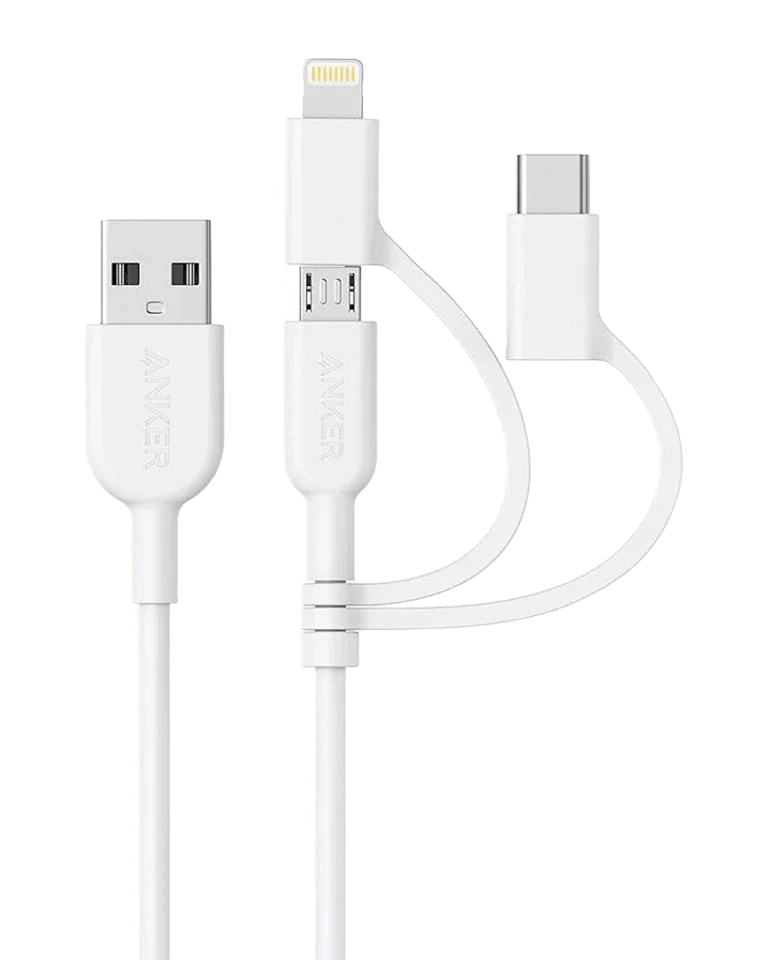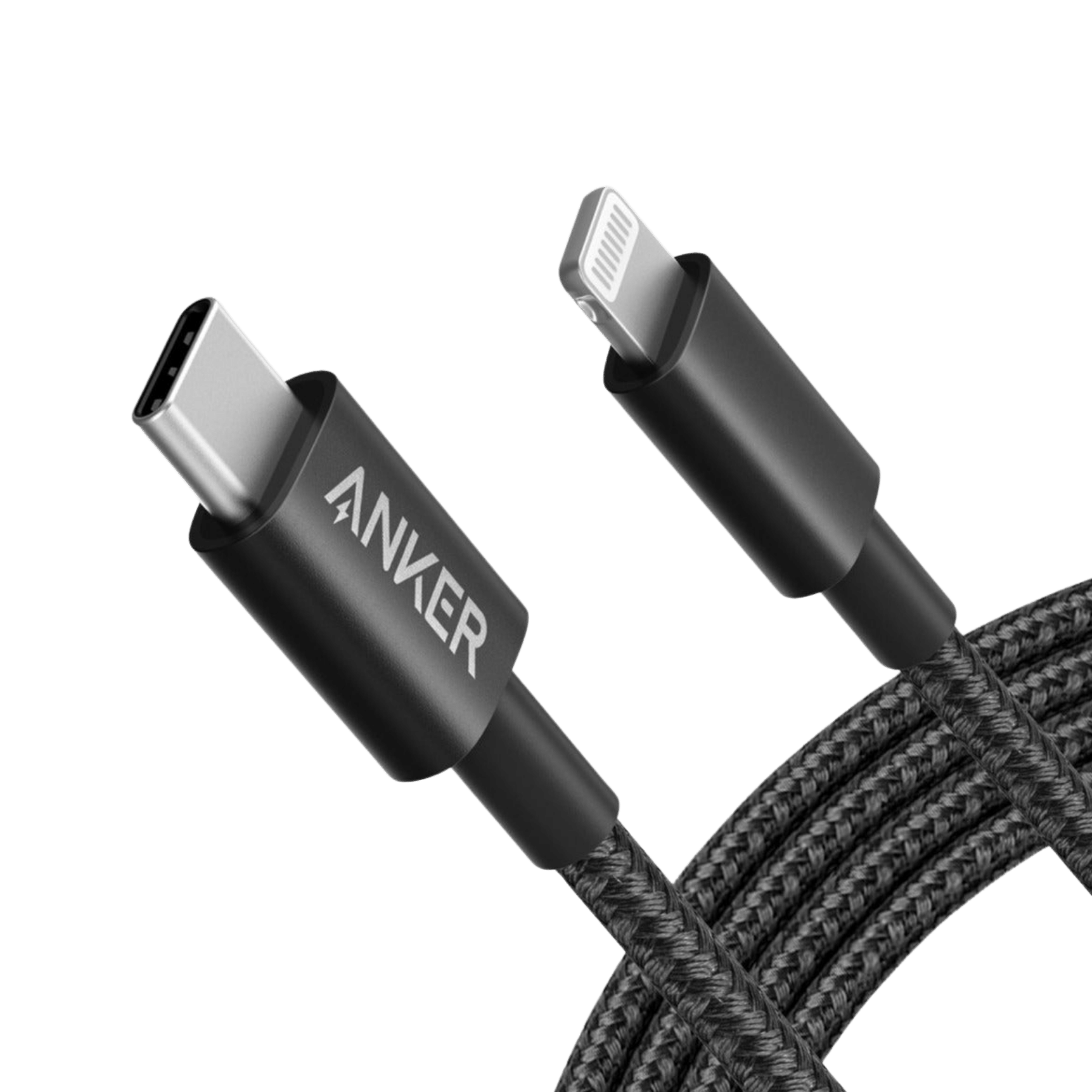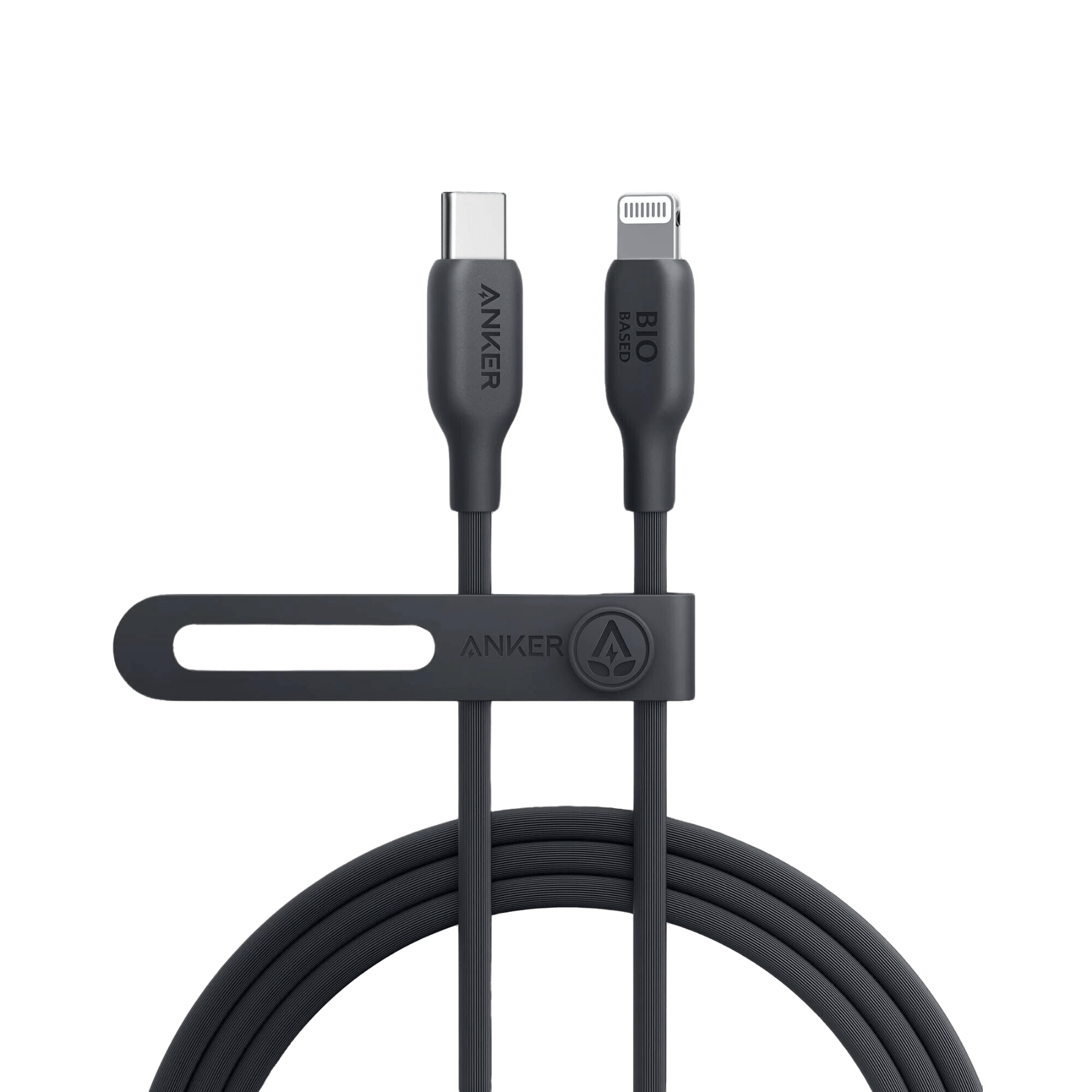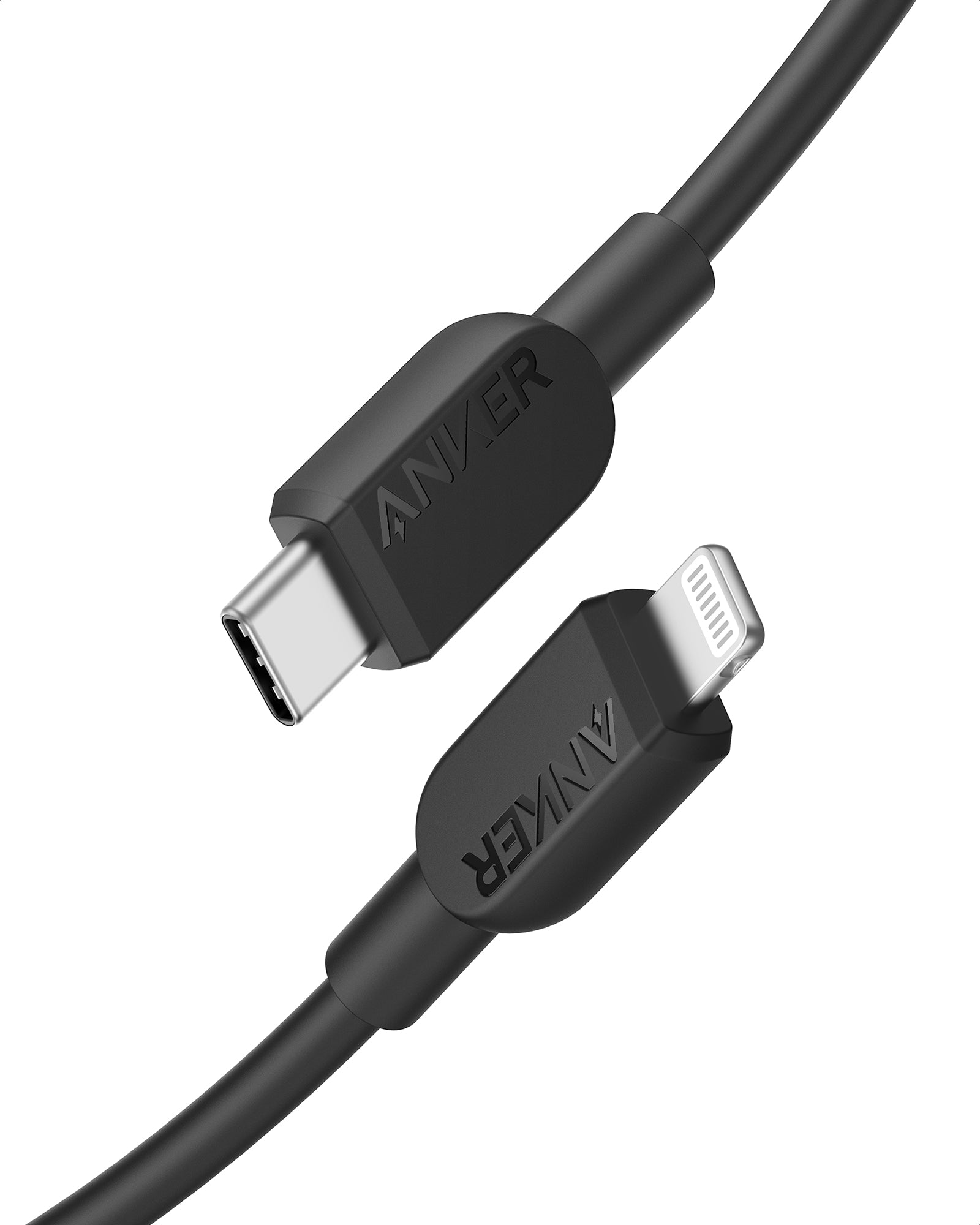USB-C to Lightning cables offer fast and efficient charging and data transfer capabilities, enabling seamless compatibility between Apple devices and a wide range of USB-C-equipped devices, enhancing convenience, speed, and versatility in device connectivity and synchronization.

Filter

Anker 321 USB-A to Lightning Cable (3ft 3-in-1)
$19.99

Actual Payment Over $100 Get Anker PowerLine ll 3-in-1 Cable
$19.99

Anker 322 USB-C to Lightning Cable
$19.99

Anker 641 USB-C to Lightning Cable (Flow, Silicone)
$29.99

Anker 331 USB-C to Lightning Cable
$22.99

2 Pack New Nylon USB C to USB C Cable( 91cm/ 182cm)
$34.99

2 × Anker 322 USB-C to USB-C Cable
$39.99

Anker 321 USB-A to Lightning Cable
$19.99

Anker 541 USB-C to Lightning Cable (Bio-Based)
$29.99

Anker 321 USB-C to Lightning Cable (91 cm/182 cm)
$22.99

Anker USB C Cable (2-Pack, 91cm)
$24.99
More About USB-C to Lightning Cable
Elevate your charging and data transfer experience with Anker's exceptional USB C to Lightning cables. Engineered to deliver unmatched performance, these cables seamlessly pair with an 18W or high-power 100W USB C charger, harnessing the power of Power Delivery for a lightning-fast 0 to 50% charge in just 30 minutes.
Meanwhile, MFi certification guarantees flawless compatibility with your Lightning devices, ensuring secure and rapid charging. Moreover, you can enjoy thrilling high-speed data transfer, moving movies, music, and photos at an impressive 480Mbps.
Furthermore, Anker USB C Lightning cables come with a premium design with polished stainless steel and curved edges, not only exuding elegance but also guarding against scratches. And, the PowerLine+ III series are crafted for longevity, boasting an ultra-slim build with a remarkable 35,000-bend lifespan to ensure the reliability that stands the test of time.
Overall, our USB Type C Lightning cables redefine convenience and durability, making them the ultimate choice for those who demand nothing but the best. Check out to find the perfect USB-C to Lightning data cable for your devices now!
FAQ
What is the USB-C to Lightning cable used for?
A USB-C to Lightning cable is used to connect devices with a USB-C port to devices with a Lightning port. It's commonly used to charge and sync Apple devices like iPhones, iPads, and AirPods with Lightning connectors to allow faster charging and data transfer compared to traditional USB-A to Lightning cables.
Can I use a USB-C to Lightning cable for data transfer?
Yes, you can use a USB-C to Lightning cable for data transfer. These Apple USB C to Lightning cables are designed to not only facilitate fast charging but also enable high-speed data transfer between devices. For example, Anker 762 USB-C to Lightning Cable (3ft / 6ft Nylon) can effectively handle data transfer tasks with a 480Mbps transfer speed whether you're transferring movies, syncing content between devices, or performing backups.
Can I use a USB-C to Lightning cable for fast charging my iPhone?
Yes, you can use a USB-C to Lightning cable for fast charging your iPhone. This type of cable, when combined with a compatible USB-C power adapter like our 100w GaN charger, can deliver faster charging speeds compared to traditional USB-A to Lightning cables because USB-C to Lightning cables often support Power Delivery (PD) technology, allowing for higher power transfer.
Do all iPhones and iPads support USB-C to Lightning cables?
No, not all iPhones and iPads support USB-C to Lightning cables. While newer iPhone models (starting from iPhone 8) and most recent iPad models have a Lightning port that's compatible with USB-C to Lightning cables, older devices still use the traditional Lightning connector. Please check the specifications of your iPhone or iPad to determine whether it supports USB-C to Lightning cables.
Can I use a non-certified USB-C to Lightning cable with my Apple devices?
No, it's not suggested to use a non-certified USB-C to Lightning cable with your Apple devices. Apple's MFi (Made for iPhone/iPad) certification ensures that a cable meets its quality and performance standards. Non-certified cables might not provide reliable charging or data transfer, and they could potentially damage your devices due to compatibility issues or poor build quality.














